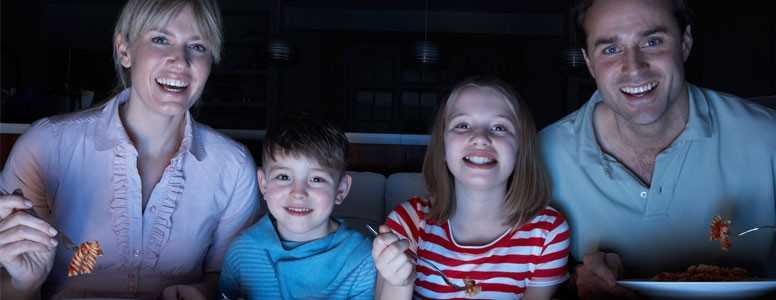Families that eat meals with the TV on are more likely to eat less healthy food, a new US study reports.
These families were also less likely to enjoy their meals compared to families who ate dinner with the TV off.
University of Minnesota researchers aimed to explore the link between watching TV during meals and risk factors for childhood obesity, which increases the risk of type 2 diabetes. To do this, they analysed video recordings between 2012 and 2013 of 120 families that included a child aged 6-12.
Each family used an iPad to record two of their family meals. The study team then evaluated the nutritional value of the meals and whether a TV was in use, as well as the emotional atmosphere of the family.
Two thirds of the families left the TV on during both recorded meals. Of this group, two thirds paid attention to the TV while the other third had it on in the background.
Families who didn’t have the TV on during one or no meals enjoyed their food more than those who watched TV during both meals. This finding applied regardless of how much attention was paid to the TV.
Furthermore, the families who didn’t watch TV ate significantly healthier food; the families who watched TV were more likely to eat fast food.
“Family meals are protective for many aspects of child health. Having the TV on during the family meal may reduce the opportunity for this connection between family members and blunt the protective effects of the meal,” lead author Amanda Trofholz told Reuters.
Children of families who watched TV with meals were not more likely to be overweight or obese compared to children who didn’t watch TV, but Trofholz stressed that parents can use meal times to educate their children about diet.
“In addition to increasing family meals, families should be given guidance on turning off the TV and making the family meal a time to connect with one another,” said the researchers.
The study was published in the online journal Appetite.
What's new on the forum? ⭐️
Get our free newsletters
Stay up to date with the latest news, research and breakthroughs.








